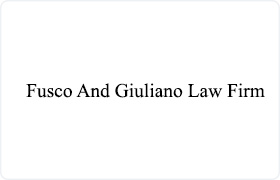 East Berlin Criminal Lawyers, Connecticut
East Berlin Criminal Lawyers, Connecticut
Sponsored Law Firm
-
 x
x

Click For More Info:
-
Fusco And Giuliano Law Firm
39 Russ Street Hartford, CT 06106» view mapCriminal Defense Law Working Relentlessly For You
Fusco And Giuliano Law Firm serves clients in Hartford, CT and the surrounding areas.
800-731-1370
Sponsored Lawyers
1-5 of 5 matches
Accident & Injury, Criminal, Estate, Business, Workers' Compensation
Nicholas T. Kocian is the president and founder of the Kocian Law Group. Nick has practiced law for over thirty years focusing on personal injury matters, including but not limited to medical malpractice, motor vehicle, products liability, construction, premises liability and workers’ compensation claims. He has handled cases at all stages of litigation and trial, including civil jury trials, court/bench trials, formal hearings before the Workers’ Compensation Commission, and hearings at the CRB appellate level. Nick has also appeared before the Connecticut Supreme Court. Prior to establishing the Kocian Law Group, Nick was associated with a prominent New York Wall Street firm where he defended physicians and hospitals in medical malpractice claims throughout New York. In this position, Nick worked with leading trial lawyers, becoming skilled in litigating and preparing cases and gaining an extensive understanding of how insurance carriers defend medical malpractice claims. Nick initially opened his own solo attorney practice in Hartford, Connecticut. His firm was founded on the principle of providing professional, immediate and personalized legal representation to individuals who have been injured or harmed by the negligence of others. Nick’s philosophy is that the needs of the client come first and being a lawyer means always standing up for the rights of your clients, regarding significant events and issues that affect their lives, and fighting for truth and justice. Today, the Kocian Law Group has evolved into a multi-specialty practice committed to protecting the rights of individuals and families with attorneys working across four office locations in Connecticut and one office in New York.
(more)


 Carmine Giuliano Hartford, CT
Carmine Giuliano Hartford, CT AboutFusco And Giuliano Law Firm
AboutFusco And Giuliano Law Firm Practice AreasExpertise
Practice AreasExpertise

